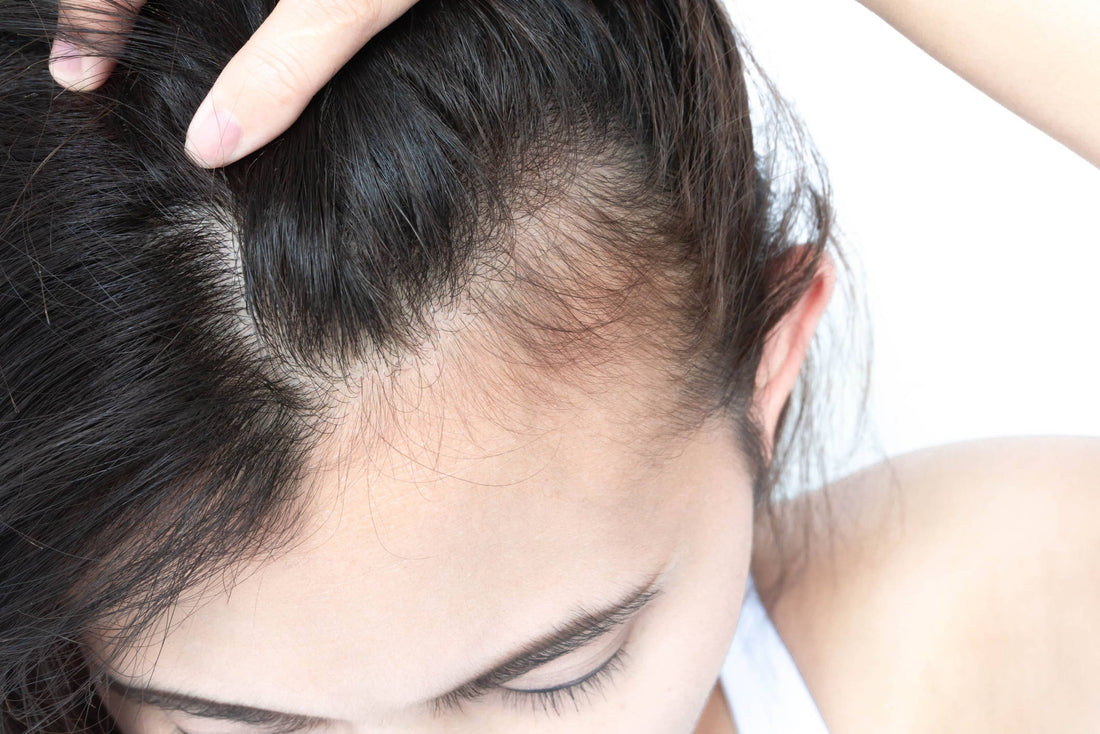Lupus is an autoimmune disease that causes inflammation in your body, which can result in inflammation of the scalp and hair loss. Hair loss due to lupus can be gradual or sudden, and it may happen in patches or all over the scalp.
People with lupus may have bald spots on their heads, but there are treatments that can help restore your hair if you're suffering from alopecia.
The exact cause of hair loss from lupus is unknown. However, researchers believe that it has something to do with your immune system attacking itself rather than foreign invaders like viruses or bacteria.
This article explores lupus-related alopecia, its causes, and treatment options.
What Is Lupus?
First things first: lupus is an autoimmune disease that causes your immune system to attack healthy tissue. If you have lupus, this often affects connective tissues in the body, like your skin and joints.
In addition to causing inflammation in these areas, lupus can also be linked to hair loss since it impacts your body's ability to produce collagen (the protein that maintains skin elasticity).
Hair loss in people with lupus is usually gradual and patchy. You might see some thinning at first, followed by more significant shedding later on. It's important to note that while hair loss can occur as part of the disease, it isn't always due to lupus itself.
There are other factors that could contribute to hair loss, including certain medications or even stress levels that aren't directly related to your overall health but still have an impact on how well your body functions.
What Causes Lupus?
Lupus is often triggered by environmental factors, but genetics also play a role in whether or not you develop it.
There are many factors that contribute to the development of lupus, including genetics, environmental triggers like sun exposure or smoking cigarettes, and lifestyle choices like diet and exercise habits.
While we’ve yet to discover what causes these triggers, there are some things we do know, like how these triggers combine with our genetics and cause lupus:
You have a genetic predisposition for developing lupus if one or both of your parents have been diagnosed with it. Furthermore, the severity of your symptoms depends on how much genetic material (DNA) you inherited from each parent.
What Causes Lupus-related Hair Loss?
Hair loss due to lupus can be triggered by simple factors like medications you’re taking or be caused by something more complex such as scarring alopecia.
Prednisone, for example, is a common medication used to treat lupus and other autoimmune disorders. Prednisone often causes hair loss by reducing blood flow to the scalp and causing what's known as telogen effluvium — a fairly common form of non-scarring alopecia that occurs when more hair strands than usual enter a resting phase, resulting in shedding.
Other causes of lupus-related hair loss include scarring alopecia, which occurs when the immune system mistakenly attacks healthy tissue. Scarring alopecia can be caused by medications such as chemotherapy drugs and steroids, but it has also been known to arise spontaneously without any triggers.
Other causes of hair loss due to lupus include:
- Hair treatments - One of the most common causes of hair loss in lupus is a reaction to certain types of hair care products. When you have lupus, you may have an overactive immune system that reacts to chemicals in your environment. This can include some ingredients commonly found in dyes and conditioners, as well as other products used to treat or style your hair.
- Tinea - Tinea is a fungal infection that can cause hair loss in lupus. People with lupus sometimes end up with immune systems that can't properly fight off the fungus. This can lead to inflammation and damage to the scalp and skin. The scalp is a common site for tinea infections because it's warm and moist, which are ideal conditions for fungi to grow.
- Nutritional deficiencies - Nutritional deficiencies in people with lupus can be caused by several factors, including a diet that does not include enough protein, iron, and vitamin B12. Hair loss can also be the result of anemia and malnutrition, which can be caused by a poor diet or eating too little food.
- Thyroid issues - Thyroid problems are one of the most common causes of hair loss in women with lupus. If you have an underactive or overactive thyroid gland, it can cause your body to produce too much or too little thyroid hormone, which leads to thinning hair or bald spots on your scalp.
The Takeaway
Lupus is a complicated disease, and there are many factors that affect how it manifests physically. Hair loss is one of those factors, which can be very distressing for those who experience it.
The good news is that many people with lupus are able to get their hair back once they've been diagnosed and treated for their illness. The key is to find a doctor who knows what they're doing and can help develop a treatment plan. The right doctor should be able to help you address hair loss as well as minimize and manage the disease’s many symptoms, improving your quality of life.

